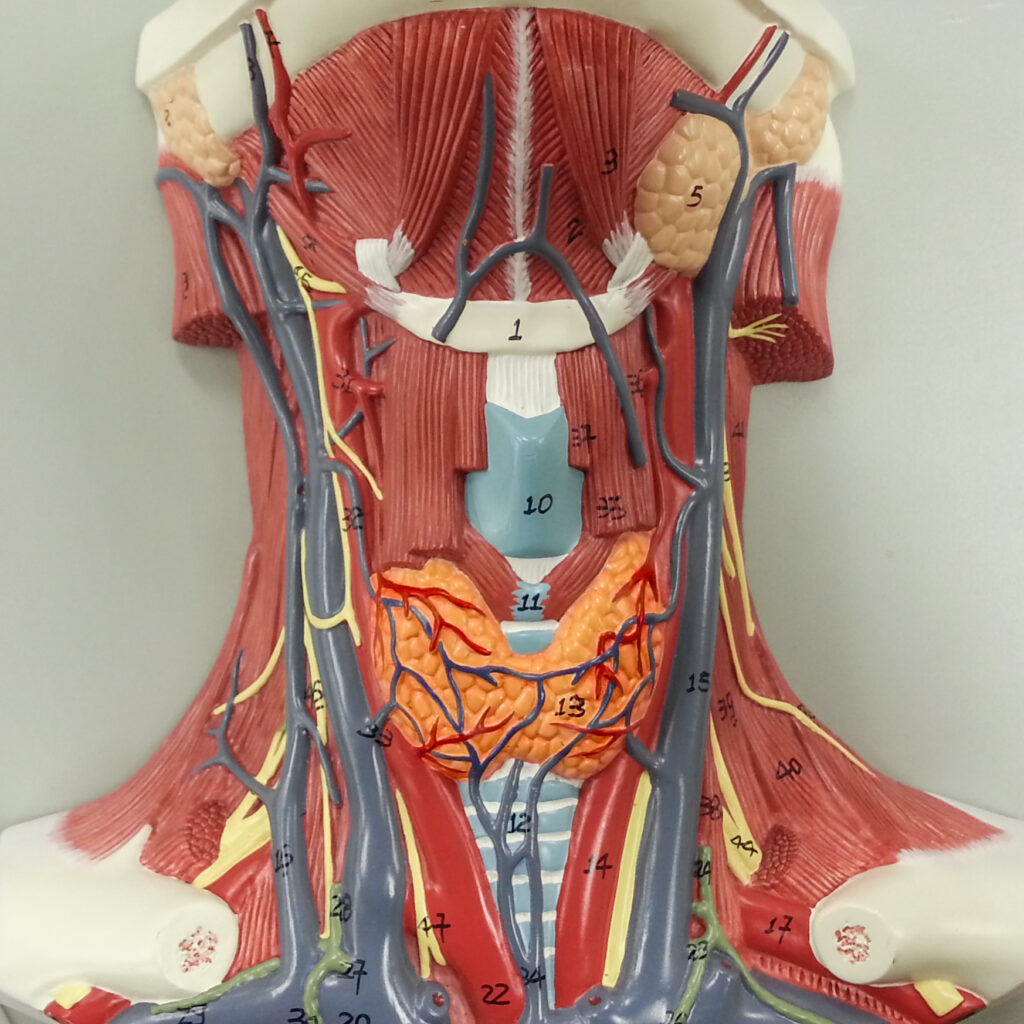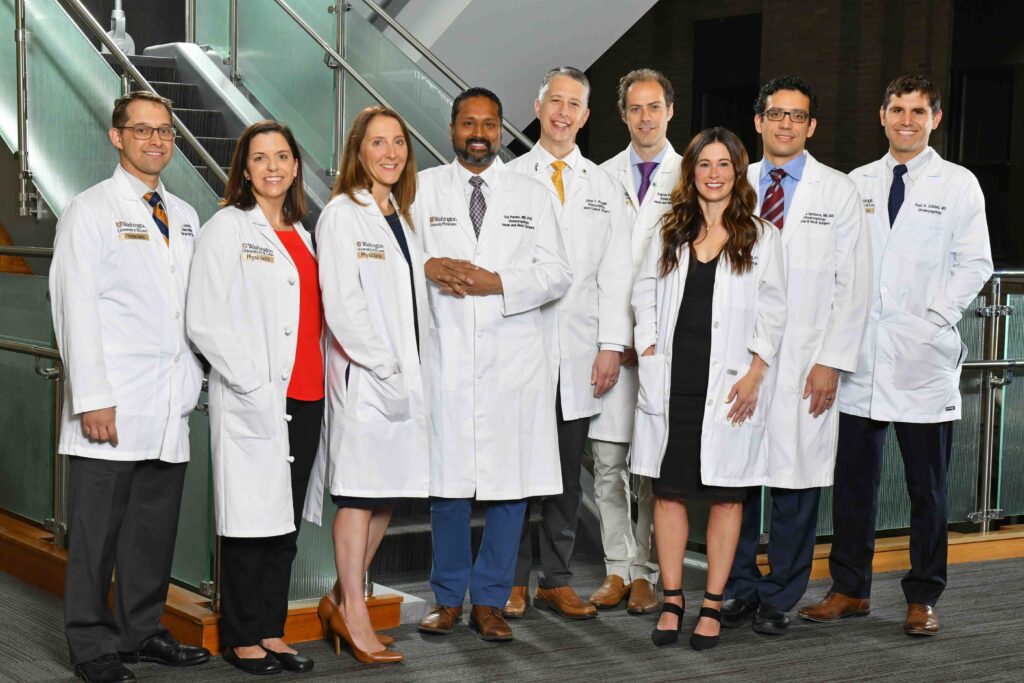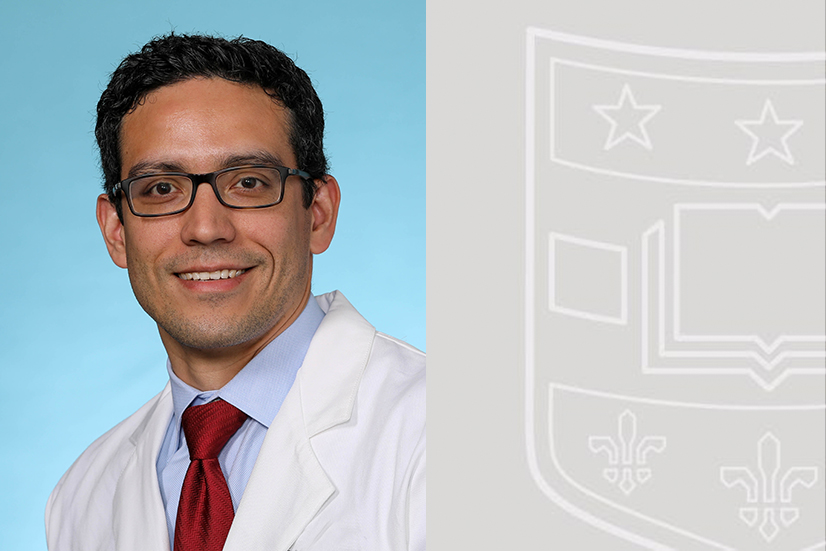Washington University head and neck surgeon Alex Harbison, MD, has performed the institution’s first transoral thyroidectomy to remove the thyroid gland from a patient suffering from hyperthyroidism.
The procedure was developed ten years ago in Thailand but is still relatively new in the United States. Harbison learned the technique during his head and neck surgical oncology fellowship at Johns Hopkins University.

The thyroid gland produces hormones that play a critical role in regulating the body’s metabolism. According to the American Thyroid Association, more than 12% of the American population will develop some sort of thyroid disease, with women affected 5-8 times more than men.
For those facing surgery as a corrective measure, visible evidence of surgery or scarring can be a major concern, for both cosmetic and health privacy reasons.
Thyroid removal is often necessitated for a variety of serious condition, including:
- Presence of a cancerous or pre-cancerous nodule
- Enlarged symptomatic thyroid nodule
- Hyperthyroidism (overactive thyroid) that does not respond to other medical treatments
The procedure utilizes three small incisions made inside the lower lip. Through these incisions, the surgeon can place endoscopic and robotic instruments to remove the thyroid gland.

The procedure is feasible with both robotic and conventional endoscopic instrumentation providing significant ergonomic benefits for the surgeon, allowing them to operate with precision and comfort by looking directly at a screen.
“The head and neck surgery team at WashU performs hundreds of thyroid surgeries each year,” said Harbison. “The transoral approach offers a safe and effective alternative to conventional surgery, allowing patients to avoid visible neck scars.”
Transoral thyroidectomy has demonstrated highly reproducible results in high volume institutions. Post-operative care includes simple mouthwash 3X daily for several days, and most patients can eat a soft diet for dinner the evening following surgery. This technique represents a significant advancement in the field of thyroid surgery, aligning medical outcomes with patient concerns for better overall care.
For more information on transoral thyroidectomy, contact Alex Harbison, MD.
